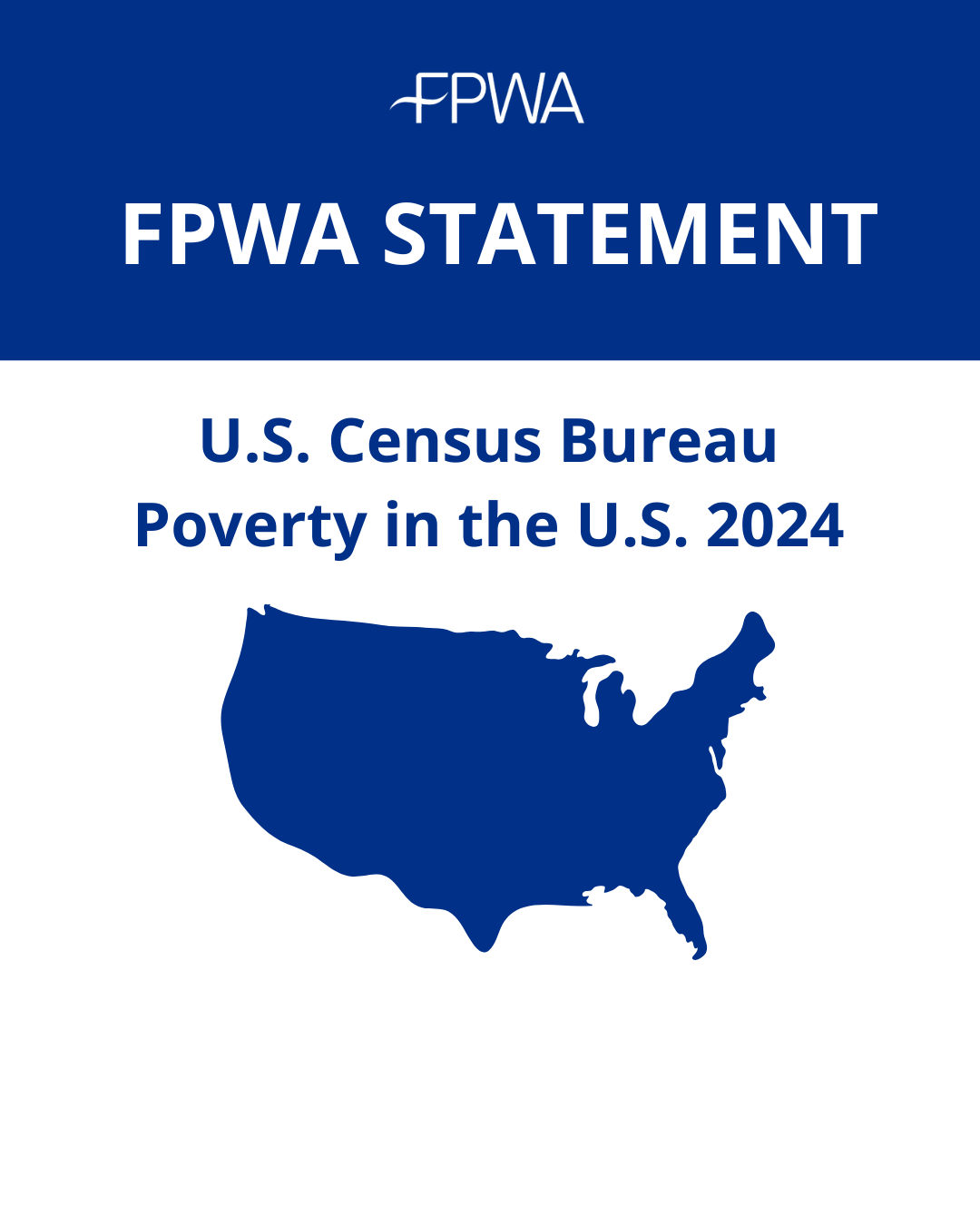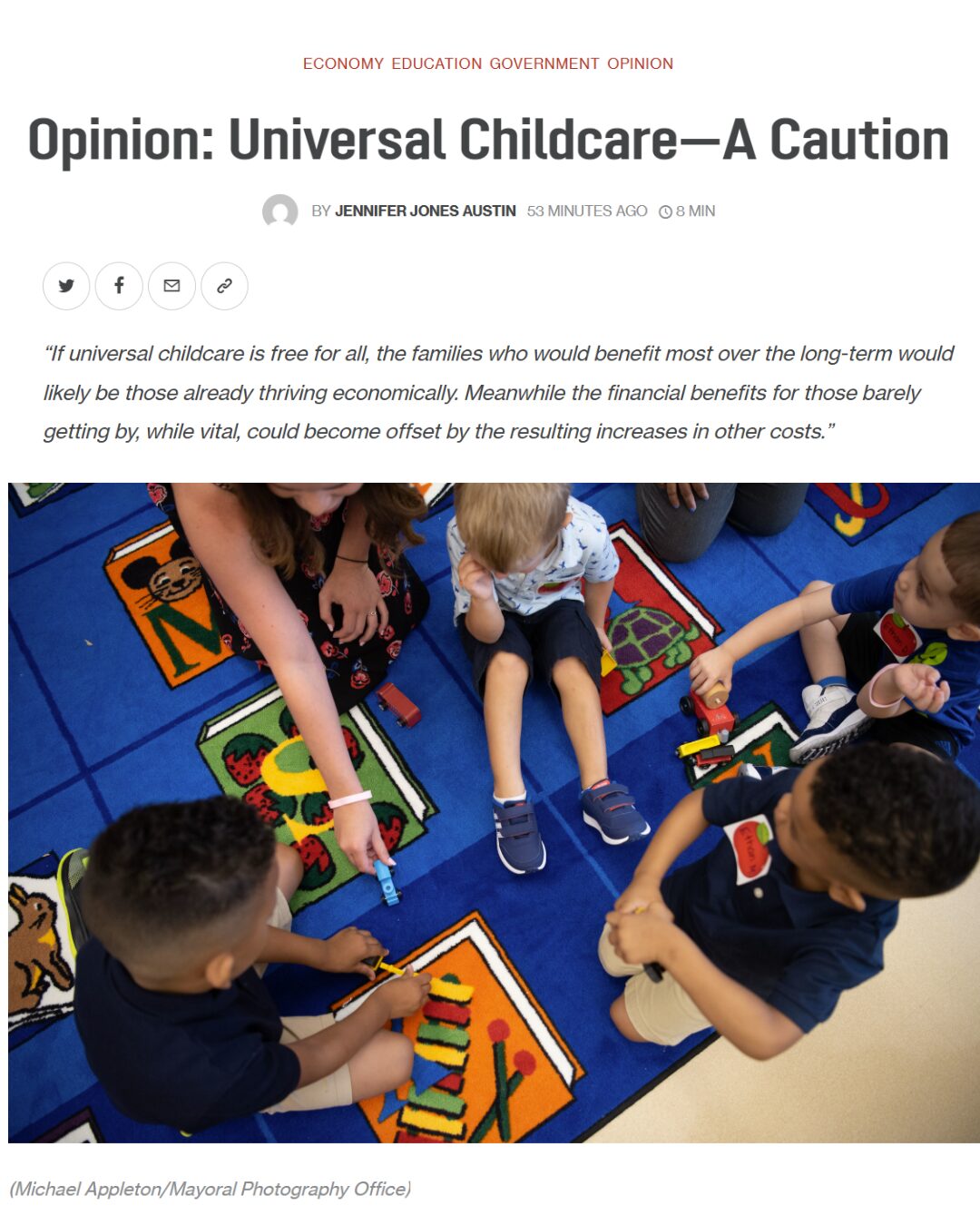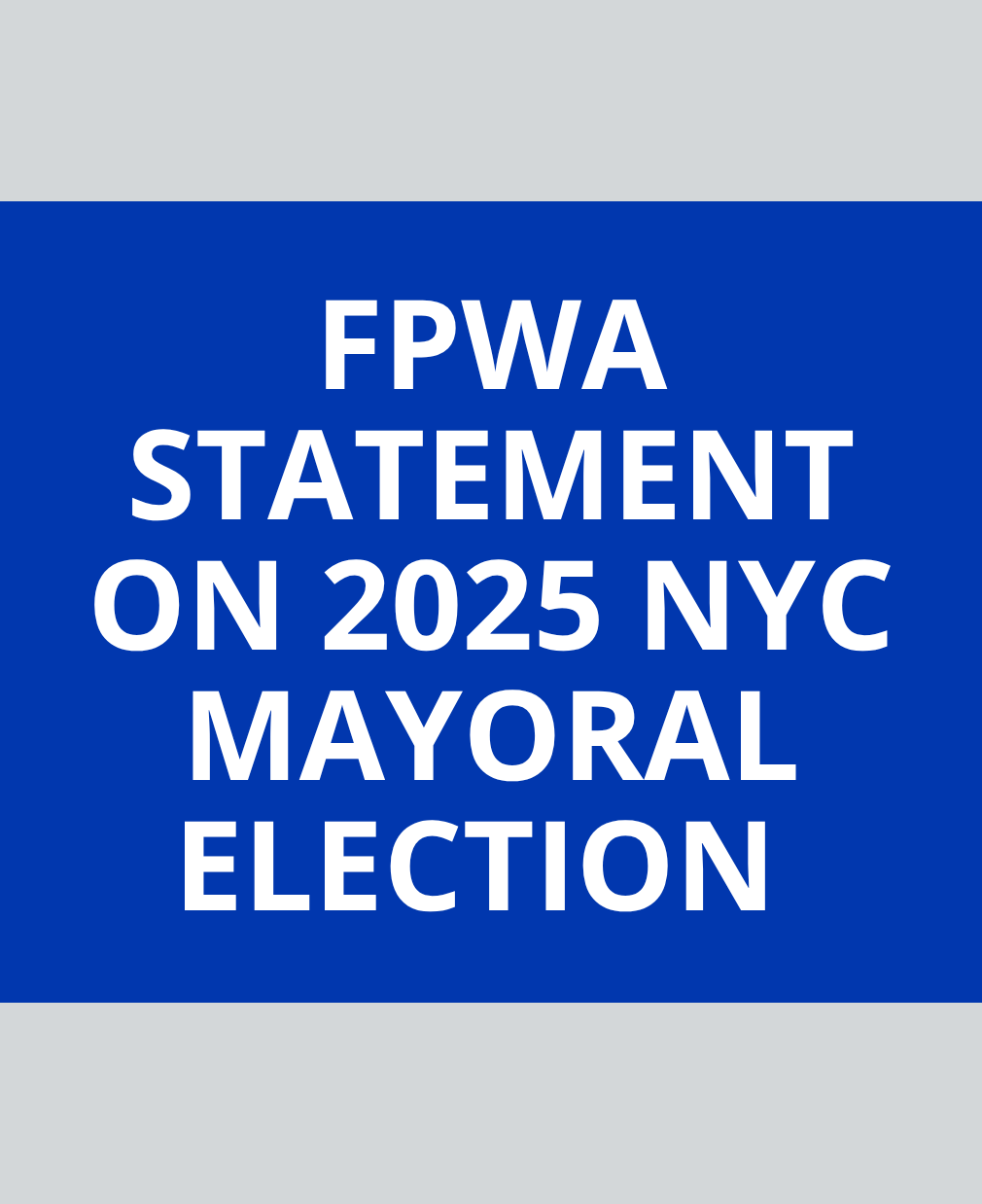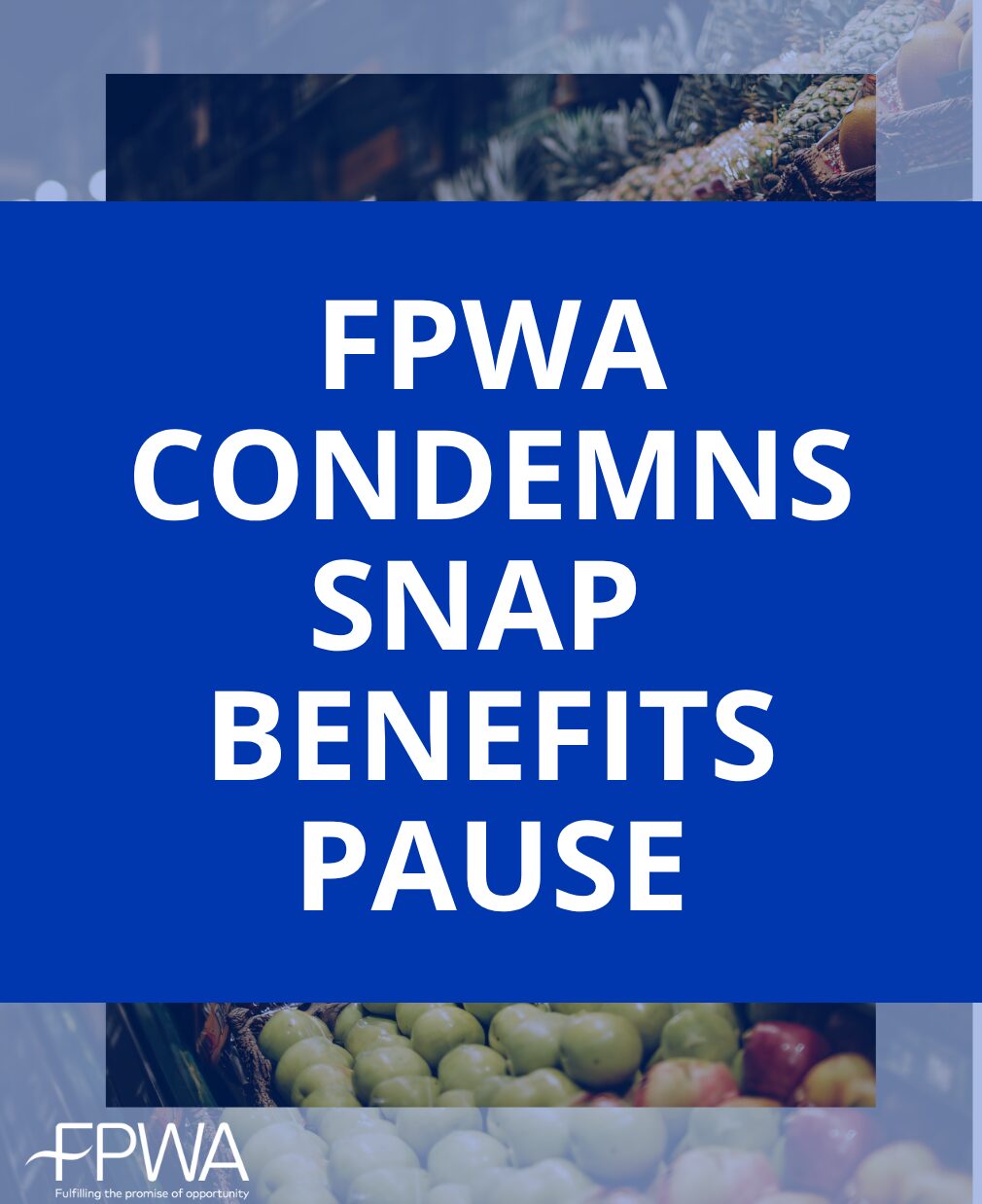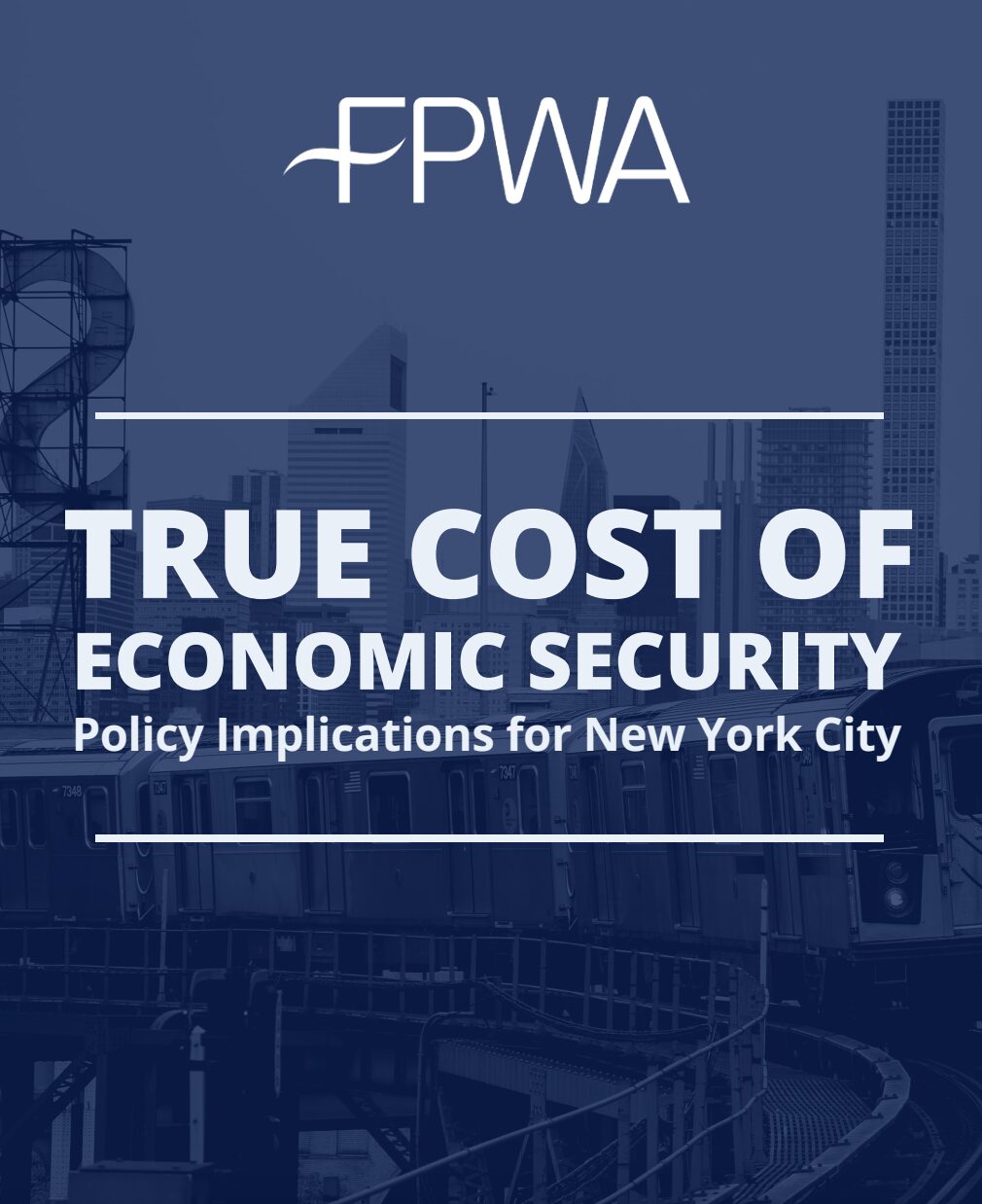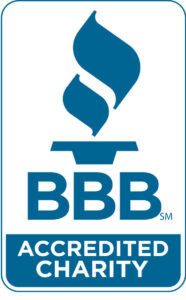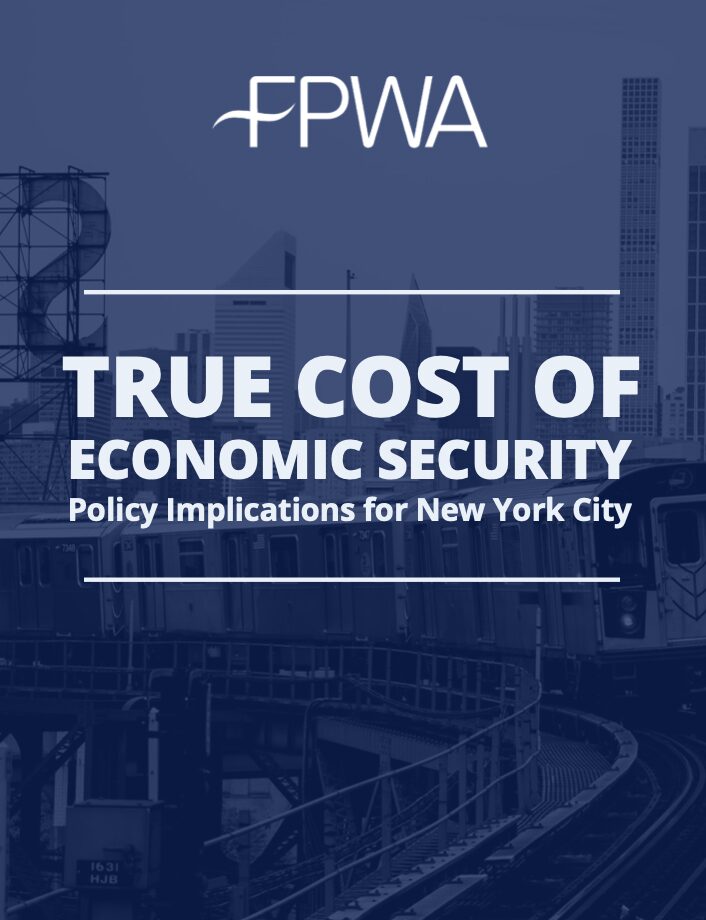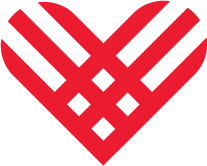For Immediate Release:
September 10, 2025
Contact: Andrew Kitzman, akirtzman@actumllc.com
FPWA Statement: U.S. Census Bureau’s 2024 National Poverty Statistics
New York, NY (Wednesday, September 10, 2025) – With Congressionally legislated cuts to basic income supports soon to take effect, the reduction of .4 percent in poverty in 2024, according to the U.S. Census Bureau’s 2024 National Poverty Statistics report, will likely be short-lived. All the while, the deepening economic insecurity experienced by hundreds of millions more Americans whose incomes are not sub-level and therefore not captured by the Bureau’s outdated poverty measure continues to go unseen and unaddressed.
The Urban Institute’s True Cost of Economic Security (TCES) measure provides a more accurate picture of how Americans throughout the nation are faring. 52% don’t have enough resources to pay for all necessary goods and services, set aside savings both for the future and for short-term emergencies, and manage debt. Individuals and families struggling to make ends meet or plan for the future are locked out of full participation in the economy and our society, with the nation losing out on potential productivity, innovation and growth. TCES reflects what it truly takes not just to survive, but to fully ensure a thriving America.
Poverty and economic security are not inevitable; they are the result of policy choices. If we first measure what matters, we can make economic security, agency, and freedom not just privileges for the few, but guarantees for all.
FPWA calls on policymakers to embrace TCES, making economic security, not poverty, the nation’s north star for all. To learn more, visit nationaltruecostofliving.org.
###
The Federation of Protestant Welfare Agencies (FPWA) is a leading anti-poverty, social policy and advocacy organization dedicated to strengthening human services organizations and faith institutions and advancing economic opportunity and justice for New Yorkers with low incomes. Since 1922, FPWA has driven groundbreaking policy reforms to better serve those in need. We work to dismantle the structural and systemic barriers that impede economic security and well-being, and we strengthen the capacity of human services agencies and faith organizations so New Yorkers with lower incomes can thrive and live with dignity.

